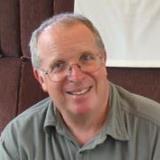
BIO NOTE
Poetry is a word like love: an endless confusion of different things all warped into one word because no vocabulary of discrimination exists. I’m concerned with how to make poems work. Jack Gilbert
Jack Gilbert’s not even my avatar, but he can speak for me in this matter. I’d add, though, that “working,” as applied to poetry, refers to a quality of aliveness, a capacity not just to imitate an experience but to reactivate it in the reader or listener. The formal aspects of the poem justify themselves only insofar as they bolster this project, and are otherwise worthless.
I started in poetry fairly early—high school—kept it going despite lousy work habits and little coherent purpose, for about a decade, through a Ph.D. in modern poetry at SUNY Buffalo and five years as an assistant professor at San Francisco State University. Then, after what was probably a politically-motivated firing, I gratuitously self-exiled until my late 40’s, when I realized I’d never be quite right with myself unless I revisited the contemporary U.S. poetry scene.
I’ve been trying in a small way to catch up with my august but now superannuated peers—by publishing both my own scribbles and by doing translations, also through giving readings, e.g. one with my son George this past summer in Edinburgh. I’ve been told, probably as an insult, that I’m a voice-driven poet. That actually sits OK with me. If the poems seem to address you personally and directly, even if they don’t always say the nicest things, well, I can live with irreverent, but I apologize if you feel like adding intrusive.
For half a dozen years I did a lot of very short forms—haiku, senryu, tanka—because my children, then little, required so much attention I couldn’t sustain elaborate literary structures. But as the boys needed me less I recognized I could go longer, with both free verse and a kind of bastardized formalism. Lately I’ve leaned heavily on corrupted couplets: irregular units that superficially represent order but actually mock such aspirations.
Thirty years of practice as a psychologist with an interest in creativity theory has helped me understand my longstanding affection for Anthony Quinn’s portrayal of the historical character Aouda Abu Tayi in Lawrence of Arabia. A chief of the Bedouin Howeitat clan, fierce, avaricious, endowed with sardonic humor, Aouda prides himself on doing nothing unless it serves his “pleasure.” That’s also one of the three cardinal attributes of what Wallace Stevens terms the supreme fiction: “It must give pleasure.” We may call someone’s poetic output a body of work, but for everybody’s sake I hope the given artisan was whistling while he plied his trade.
